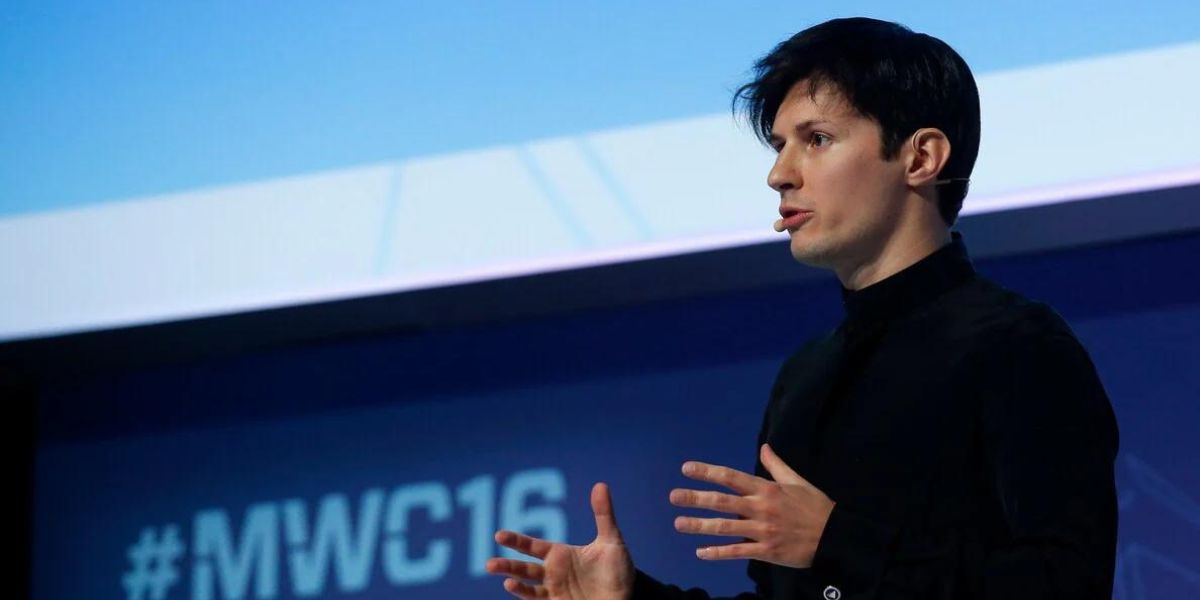Telegram CEO Pavel Durov’s Arrest

The arrest of Pavel Durov, the CEO and founder of Telegram, in Paris on August 24, 2024, has sent shockwaves through the tech industry and raised significant concerns about the future of one of the world’s most popular messaging platforms. Telegram, known for its emphasis on privacy and large-scale communication, has often been at the center of controversy. The recent arrest, however, marks a new chapter in the ongoing debate about the responsibilities of tech companies in preventing illegal activities on their platforms.
This article delves into the reasons behind Pavel Durov’s arrest, the implications for Telegram, and the broader context of online platform accountability.
Who is Pavel Durov?
Pavel Durov is a name that resonates with many in the tech world. Born in Russia, Durov’s journey to becoming a tech mogul began with the founding of VKontakte, Russia’s largest social network, often compared to Facebook. However, his refusal to comply with the Russian government’s demands to censor content and hand over user data led to his eventual departure from VKontakte and Russia altogether. In 2013, he launched Telegram, a messaging app that quickly gained popularity for its focus on user privacy and security.
Telegram’s growth has been meteoric, with the platform now boasting over 950 million active users worldwide. Its unique features, such as the ability to host massive group chats with up to 200,000 participants and channels for broadcasting messages to unlimited subscribers, have made it a favorite among users seeking a versatile communication tool.
The Arrest in Paris: What Happened?
On August 24, 2024, Pavel Durov was arrested at Paris-Le Bourget Airport in France after arriving from Azerbaijan. The arrest came as a surprise to many, given Durov’s frequent travels across Europe and his reputation as a tech visionary. French authorities detained him on charges related to the alleged use of Telegram for illicit activities, including drug trafficking, money laundering, and the distribution of child sexual abuse images.
The arrest warrant issued against Durov is part of a broader investigation by French authorities into the use of Telegram by criminal networks. According to reports, the platform has been exploited by various groups to facilitate illegal activities, ranging from the sale of narcotics to the sharing of exploitative content. French investigators have pointed to Telegram’s encryption features and large group chat capabilities as factors that make it attractive to criminals seeking to evade detection.
As of now, Durov has not been formally charged, but his detention has been extended for further questioning. Under French law, he can be held for up to four days before a decision is made to either charge him or release him.
Telegram’s Role in the Alleged Illicit Activities
Telegram’s popularity is rooted in its commitment to user privacy and freedom of speech. The platform offers end-to-end encryption for one-on-one conversations, a feature that has drawn users concerned about surveillance and data privacy. However, contrary to popular belief, this encryption is not enabled by default, and it does not extend to group chats, which are a significant part of Telegram’s appeal.
The very features that have made Telegram a go-to platform for activists, journalists, and privacy-conscious users have also made it a target for criticism. Governments and law enforcement agencies have raised concerns that Telegram’s lax content moderation policies allow it to be used for illegal activities. In France, for example, the app has been linked to Islamic extremists, drug traffickers, and other criminal enterprises.
Critics argue that Telegram’s approach to content moderation is insufficient, especially when compared to other platforms like WhatsApp or Signal, which have more stringent policies and cooperate more closely with law enforcement. Telegram has been accused of being “unresponsive” to requests from authorities, a claim that has only intensified following Durov’s arrest.
The Broader Implications of Durov’s Arrest
Pavel Durov’s arrest raises important questions about the responsibilities of tech companies in the digital age. As messaging platforms like Telegram become more integral to daily communication, the line between protecting user privacy and preventing criminal activity becomes increasingly blurred.
One of the central issues in this case is the extent to which platform owners should be held accountable for the actions of their users. Telegram has consistently maintained that it abides by EU laws and that its content moderation practices are “within industry standards and constantly improving.” In a statement following Durov’s arrest, the company argued that it is “absurd to claim that a platform or its owner are responsible for abuse of that platform,” emphasizing that nearly a billion users worldwide rely on Telegram for communication and access to vital information.
However, this stance has been met with skepticism from governments and experts alike. The lack of proactive measures to detect and report illegal content has been a longstanding issue for Telegram. For instance, while WhatsApp submitted over 1.3 million CyberTipline reports in 2023, Telegram reportedly submitted none, highlighting a significant disparity in how the two platforms handle illegal content.
The situation is further complicated by the fact that Telegram is used by officials in high-profile positions, including within the French government, which is now investigating Durov. This dual use of the platform — both as a tool for legitimate communication and as a medium for illegal activities — underscores the challenges faced by regulators in balancing privacy with security.
The International Response
The international reaction to Durov’s arrest has been mixed. In Russia, where Durov has a complicated history, government officials have expressed outrage, with some calling the arrest politically motivated. Kremlin spokesperson Dmitry Peskov has noted that the charges against Durov remain unclear, urging patience until more information is available. The irony of Russia’s defense of Durov has not been lost on observers, given that Russian authorities attempted to ban Telegram in 2018, only to withdraw the ban in 2020 after failing to enforce it effectively.
Elon Musk, the billionaire owner of X (formerly Twitter) and a self-proclaimed “free speech absolutist,” has also weighed in on the situation. Musk has publicly expressed support for Durov, tweeting “#freePavel” and drawing attention to the broader debate about freedom of speech in the digital age.
Meanwhile, Western governments have generally taken a more critical stance toward Telegram. The platform has been fined in Germany for failing to comply with regulations requiring large online platforms to establish mechanisms for reporting illegal content. Brazil temporarily suspended Telegram in 2023 after the company refused to hand over data related to a police investigation into neo-Nazi activity. These incidents reflect ongoing concerns about Telegram’s role in enabling criminal behavior and its reluctance to cooperate with law enforcement.
The Future of Telegram
The arrest of Pavel Durov could have significant implications for the future of Telegram. If the charges against him lead to a conviction, it could force the platform to rethink its approach to content moderation and cooperation with authorities. This could involve implementing stricter policies to detect and report illegal content, as well as increasing transparency about how Telegram handles user data.
However, such changes could also alienate Telegram’s core user base, many of whom are drawn to the platform precisely because of its commitment to privacy and minimal interference. Striking a balance between these competing interests will be crucial for Telegram as it navigates the fallout from Durov’s arrest.
In the broader context, Durov’s case could set a precedent for how tech companies and their leaders are held accountable for the misuse of their platforms. As governments around the world grapple with the challenges of regulating online communication, the outcome of this case could influence future policies and enforcement actions. Just as we know Why is This India Post GDS Recruitment 2024 Opportunity Considered Golden for 10th Pass Candidates?
Conclusion
Pavel Durov’s arrest in Paris marks a pivotal moment in the ongoing debate about the responsibilities of tech platforms in preventing illegal activities. While Telegram has built its reputation on privacy and freedom of speech, these principles are now being tested in the face of allegations that the platform has been used to facilitate serious crimes. As the investigation unfolds, the tech community, regulators, and users alike will be watching closely to see how Telegram and its CEO respond to these challenges.
The case also underscores the broader challenges of regulating digital platforms in an era where communication is increasingly decentralized and encrypted. Finding a balance between protecting user privacy and ensuring security will be key to shaping the future of online communication, not just for Telegram, but for the entire tech industry.




